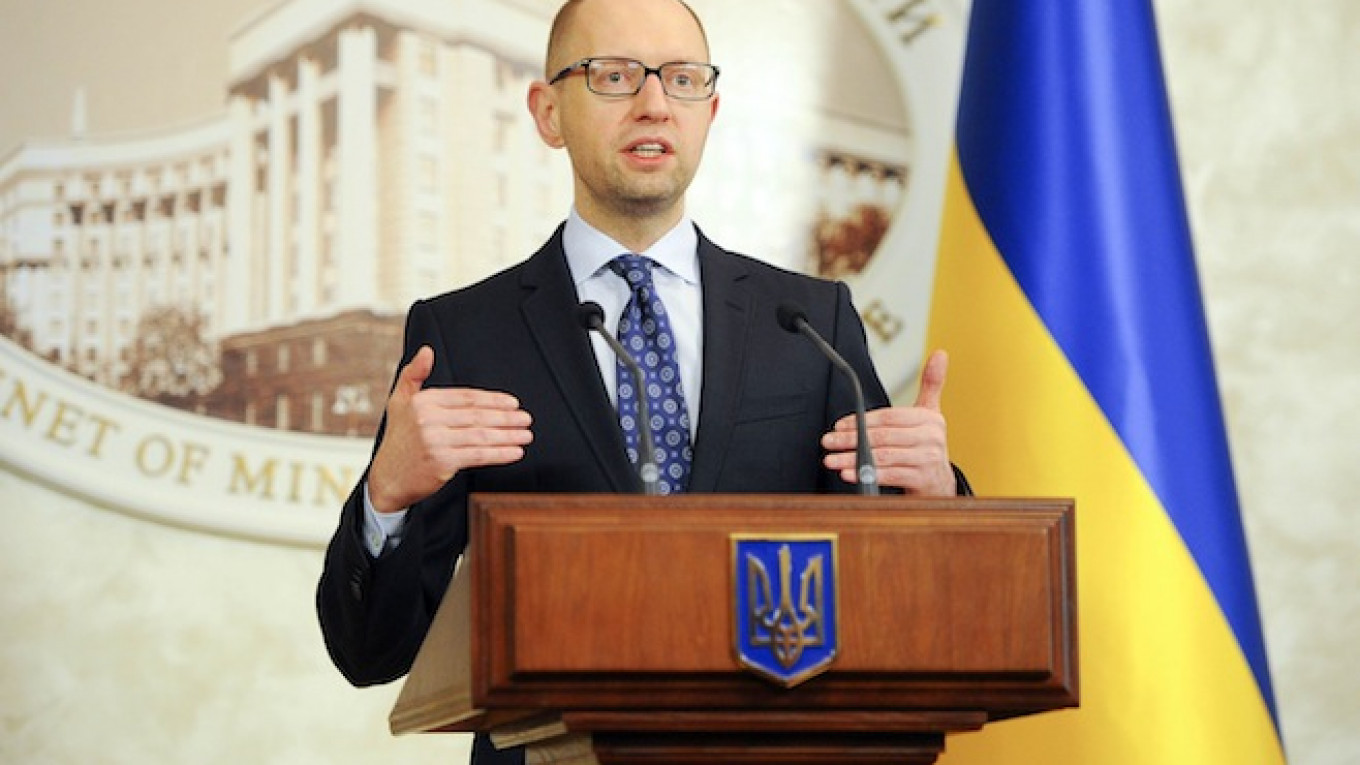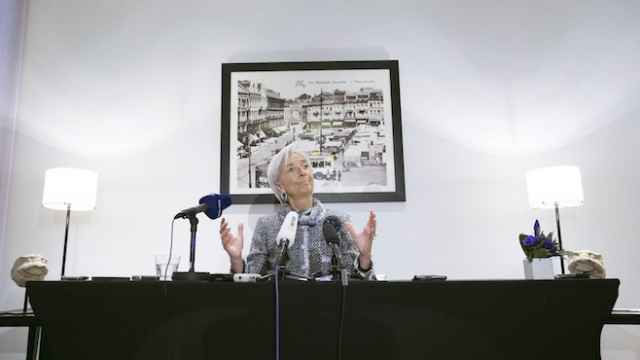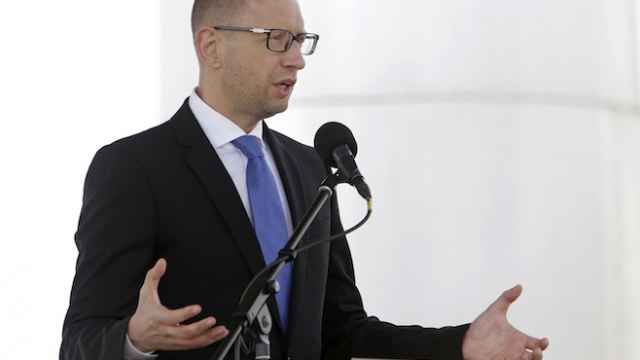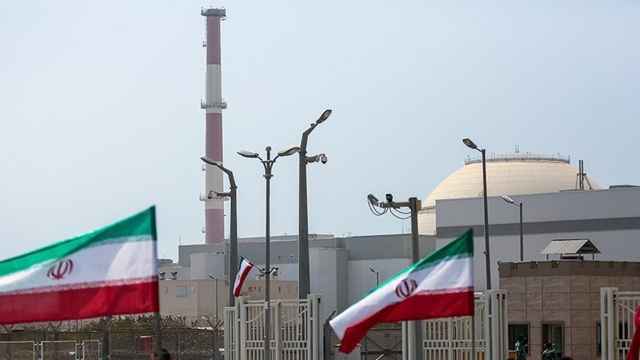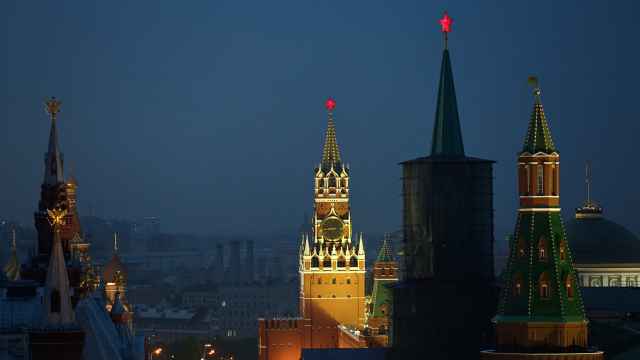KIEV — The former power company executive yanked up his trouser leg to show the electronic bracelet round his ankle that would alert police if he tried to make a run for it from Kiev.
"And all this when I am not guilty of anything and there has been no crime," said Volodymyr Zinevich.
Zinevich, 45, once director of Ukraine's state energy firm Ukrinterenergo, is suspected of embezzlement from a botched deal to buy South African coal last year. The imports were to make up for a shortfall in supplies caused by the war in eastern Ukraine.
A contract he signed for importing 1 million tons of coal to keep power plants operating was ended in November after three deliveries, when questions arose about the quality of the coal.
Prosecutors say Zinevich imported coal which was unsuitable for use. Questions were also raised over the price at which it was sold to end-users.
Nobody else has been named in the affair. Zinevich, whose company was given the tender by the government to find a foreign source of coal, denies wrongdoing and says he is a casualty of high-level political intrigue.
Is he involved in a scheme of the sort that has made Ukraine a no-go area for foreign investors for years?
Or is he, as he says, victim of competing political interests behind the scenes despite the Maidan revolution a year ago and commitments by the new pro-Western leadership to end shady dealings and corruption?
Whatever the truth, cases like that of Zinevich with undercurrents of arbitrary justice and political scheming raise awkward questions about the state of Ukraine which the "EuroMaidan revolution," a year on, has still not found a lasting answer to.
Ukraine will mark the first anniversary of the ousting of the pro-Moscow President Viktor Yanukovich next weekend, honoring the memory of the 100 or so civilians killed in protests against him.
He fled to Russia on Feb. 21 after the shootings which climaxed months of protests against his policy swerve away from European integration and against the sleaze and corruption that marked his four years in power.
Critical Mission
President Petro Poroshenko and the other pro-Western leaders who emerged have pledged to build a more just society and root out the corruption that threatens Ukraine perhaps as much as the bitter war raging in the east with pro-Russian separatists.
That mission is even more critical now with Western governments saying they will not pour money into a dysfunctional state.
In one brutal European Union appraisal, British Foreign Minister Philip Hammond described Ukraine's economy as a "sink of corruption."
As the anniversary approaches, the mood among many Ukrainians is disillusionment and resentment that no-one yet has been put on trial for the killings, something widely seen as a cover-up highlighting the malaise of a sick society.
"For a year nothing has happened. No-one has appeared in court. No-one is in jail. There's the impression that no-one wants to get to the truth," Igor Kulchytsky, whose 65-year-old father, Volodymyr, was one of those shot dead on Kiev's Independence Square, told Reuters.
Shadow Economy
In truth, rooting out corruption is not easy in a country where much of the public service functions with a flow of illicit payments that guarantee work is carried out or, often, to ensure that no steps are taken.
According to an estimate by Kiev's small foreign investment community, the shadow economy may account for as much as 60 percent of the economy as a whole.
Corporate malpractice is prevalent among state companies too, the prime minister says. The state gas company Naftogaz, for instance, has been specifically targeted by the International Monetary Fund as in need of a total re-make.
"They teem with [illegal] money," Prime Minister Arseniy Yatsenyuk said of state companies.
But there has been no consensus yet, despite months of talk, in finding someone to head a newly created "anti-corruption" body to be the arrow-head of the attack.
Needing to act to stem growing popular resentment, Poroshenko axed his prosecutor-general, Vitaly Yarema, whose office is blamed for failing to find those guilty of the Maidan shootings and for lack of action against the Ukrainian assets of Yanukovich and his circle.
Zinevich believes Yarema's office was behind his case too. He suggests it was pressured into victimizing him because the new leadership needed a showcase to demonstrate it was robustly attacking corruption.
A spokeswoman for the prosecutor general's office said: "Vitaly Yarema is not commenting on this case."
The contract Zinevich signed was for delivery of 1 million tons of South African coal — half of which was delivered before the investigation started against him.
Investigators say the coal he imported did not meet national standards. Yarema said Zinevich had caused damage to the state to the tune of $25 million.
"I think prosecutor Yarema needed a loud scandal that would draw people's attention, so they could say: 'Look at what we are doing to fight corruption'," Zinevich told Reuters in an interview.
Zinevich, who is under house arrest, denies there was any loss to the state and says he made no illegal profit from the aborted deal.
"The coal was imported and it was burned … How can you talk about a loss when it's the price of the contract? There's no crime. It's absurd."
A Message from The Moscow Times:
Dear readers,
We are facing unprecedented challenges. Russia's Prosecutor General's Office has designated The Moscow Times as an "undesirable" organization, criminalizing our work and putting our staff at risk of prosecution. This follows our earlier unjust labeling as a "foreign agent."
These actions are direct attempts to silence independent journalism in Russia. The authorities claim our work "discredits the decisions of the Russian leadership." We see things differently: we strive to provide accurate, unbiased reporting on Russia.
We, the journalists of The Moscow Times, refuse to be silenced. But to continue our work, we need your help.
Your support, no matter how small, makes a world of difference. If you can, please support us monthly starting from just $2. It's quick to set up, and every contribution makes a significant impact.
By supporting The Moscow Times, you're defending open, independent journalism in the face of repression. Thank you for standing with us.
Remind me later.


